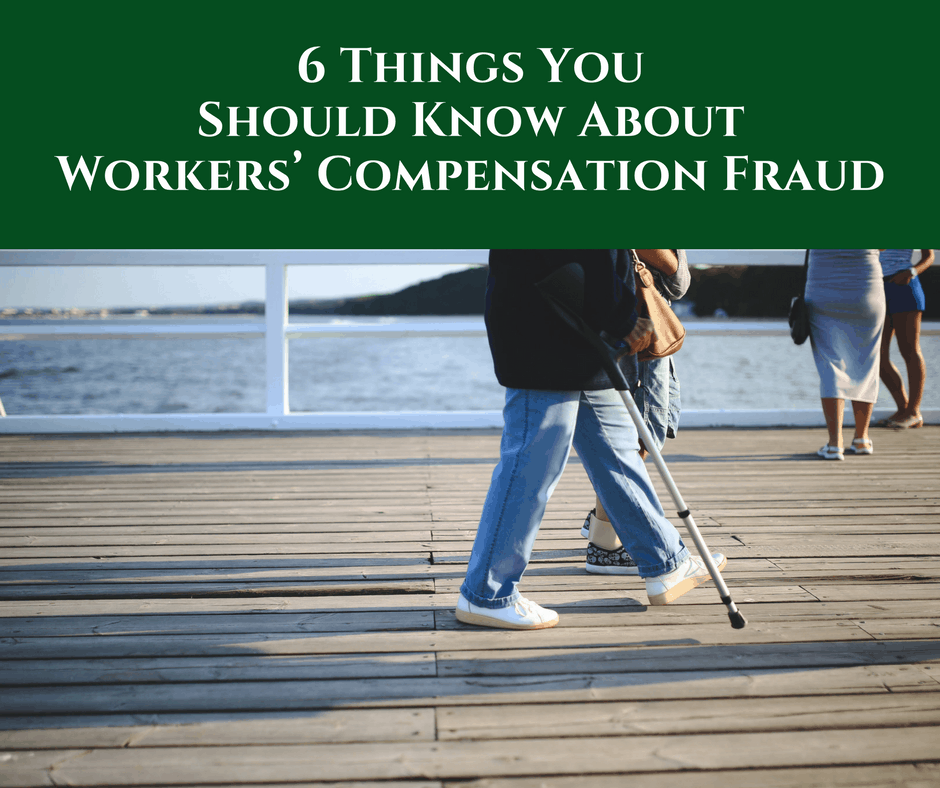6 Things You Should Know About Workers’ Compensation Fraud

Workers’ compensation fraud is rampant in the workplace today. Whether your business operates in the public or private sector, is large or small, or is publicly traded or a not-for-profit, workers’ compensation fraud has likely already impacted your bottom line. Here are six key things you should know about this type of workplace theft.
1. Workers’ compensation fraud is theft.
Workers’ compensation fraud occurs when someone willfully and knowingly makes false statements or conceals information in order to receive workers’ compensation benefits or prevents someone from receiving benefits to which they might be entitled. When it occurs, someone is lying for personal or business gain, and that typically means they are receiving funds they don’t deserve. If an employee commits this sort of fraud, your workers’ compensation insurance premiums could go up. Depending upon your company’s policies, you might also be responsible for paying out PTO, sick time, or medical benefits to an employee who did not suffer the injuries they claimed.
2. Workers’ compensation fraud is a crime.
Fraud is a Class E felony and is punishable by fines and/or jail time. If you have reason to believe that your claimant is malingering or lying about a workplace-related injury, do your due diligence. Private investigative companies like Alliance Risk Group are highly trained when it comes to assessing the activity level of a claimant and assembling the case you need to pursue a fraud finding with the Workers’ Compensation Board.
3. Workers’ compensation fraud is expensive.
According to estimates, workers’ compensation fraud costs $30 billion a year in the United States. According to some estimates, fraud accounts for as much as 10% of claim costs for insurers. Additionally, over one-third of insurers state that fraud was as high as 20% of their claim costs.
4. Public attitude often supports fraud.
As much as one-quarter of the public believes it’s acceptable to pad insurance claims. Not only does this mean it’s likely fraud has occurred within your company, it could mean that those who are aware of it might not report it.
5. Fraud comes in many forms.
According to the New York State Workers’ Compensation Board, “People who submit a false claim are committing fraud. People who get hurt participating in a leisure activity on Sunday and report it on Monday as a work-related accident are committing fraud. Employers who misclassify their employees or payroll are committing fraud. Health care providers who submit false medical reports or inflated bills are committing fraud. Attorneys who solicit a person to file a false claim, or insurance carriers who alter evidence to support a denial of benefits, are committing fraud.” In other words, fraud is perpetrated by a number of parties for a number of reasons. This diversity of risk underscores the necessity of having a dedicated investigative team on your side.
6. Due diligence can mitigate claim risk.
By hiring a private investigative firm to conduct preliminary claimant investigations, surveillance, activity checks, and social media surveillance, your company can mitigate its risk from workers’ compensation claims. Licensed and knowledgeable private investigators know the signs that a claimant is malingering and are able to document activity to help you win a fraud finding.
For more information on strategies to combat workers’ compensation fraud, please contact us today! We are happy to answer any questions you might have and to help you strategize how best to approach an investigation into potential fraud.
To read more about some of the technology that makes workers’ compensation investigations so successful, click here.
